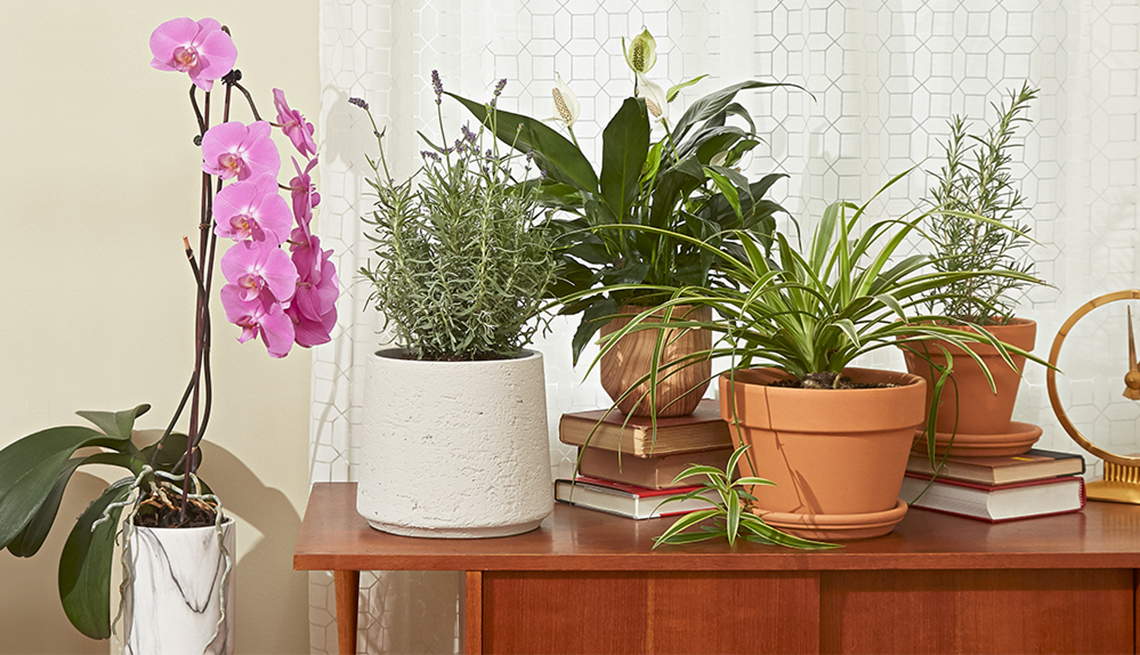Staying Fit
Having pretty plants to look at in your home is a nice perk of indoor gardening, but research suggests the activity can boost your health, too.
"Gardening has been shown in multiple studies to be associated with a reduced risk of cognitive decline or dementia in older adults,” says David Carr, M.D., a professor of geriatric medicine at Washington University School of Medicine in St. Louis. “Plants help you become more competent and give you something meaningful to do and take care of,” notes Patty Cassidy, a registered horticulture therapist. Other research suggests that gardening may help reduce blood pressure in older people and improve psychological well-being. One perhaps surprising benefit: Just talking about a common interest in plants helps to create positive relationships with others.


AARP Membership— $12 for your first year when you sign up for Automatic Renewal
Get instant access to members-only products and hundreds of discounts, a free second membership, and a subscription to AARP the Magazine.
If you live in a cold-weather region — or just lack yard space — it's easy to grow plants indoors that you can enjoy year round. Here are a few plants to try:
Orchids
While they look delicate and exotic, they are not as high maintenance as you might think. An orchid makes a good gift for recovering hospital patients, as studies show that viewing plants during recovery is linked to less pain and anxiety. Plant an orchid in a container with good drainage; once a week, add three ice cubes to it. Mist it to create humidity, which orchids love.
Rosemary
The scent of this herb may help with memory by boosting a neurotransmitter called acetylcholine. Clip the leaves to use them in the kitchen, too.
Peace lilies
Not only do they produce beautiful foliage and white hooded flowers; they also do double duty as air purifiers, removing toxins such as trichloroethylene, found in paint and varnish.
Lavender
Grow this plant in your bedroom, as it's said to improve sleep quality and promote relaxation.
Spider plants
These hearty houseplants remove formaldehyde from the air.
Tools to care for houseplants
You don't need a lot of equipment. These are the basics.
- An old spoon, fork or chopstick. Poke around in the soil occasionally to loosen it, which helps deliver air to the roots of the plants.
- A lightweight spray bottle. Spritz leaves and blossoms once every day or two to add humidity.
- A pair of cuticle scissors. Use these to cleanly remove dead blossoms or leaves without damaging the plant.
- A lightweight watering can. Choose one with a long, narrow spout so you can deliver water directly to the roots.

































































